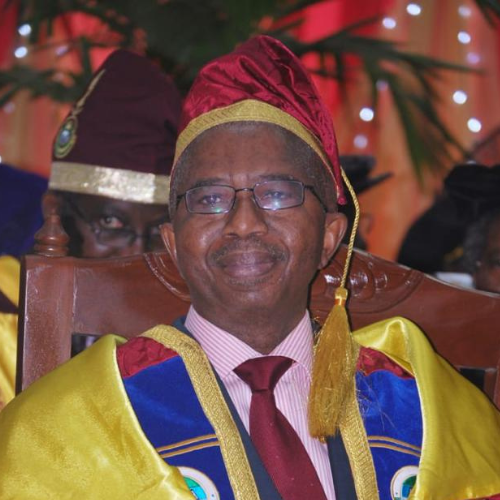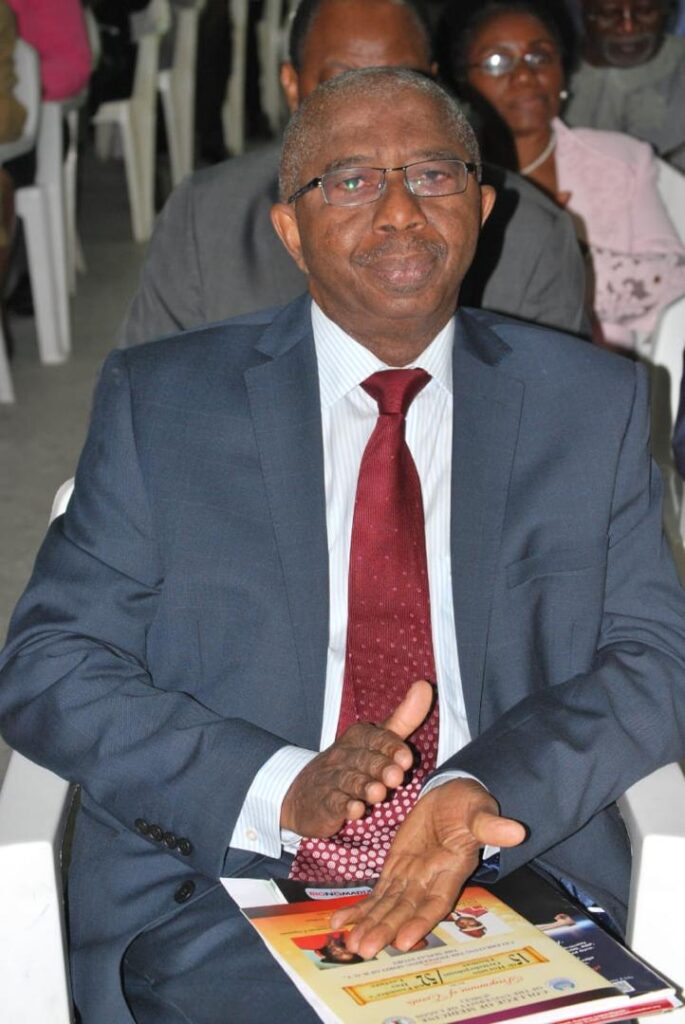
24 January 1947 – 10 June 2024
By Ahmed Oloyo, Simiat Elias, Frank Mojiminiyi (Fellow of The Physiological Society (FTPS)), Banji Adegunloye and Yemi Olatunji-Bello (FTPS)
“Soga was a giant in African and global physiology, an academic, a mentor, and a visionary, whose contributions extended beyond research to include education, leadership, and the promotion of science and technology. His legacy is one of nurturing talent in Africa.”

Emeritus Professor Olusoga (Soga) Adekunle Sofola, was born on 24 January 1947, and passed on 10 June 2024. He was a distinguished Nigerian physiologist and academic whose legacy has greatly influenced physiology education and research in Africa and globally.
He began his education at Baptist School in Kaduna and Yaba Methodist School in Lagos (Nigeria) before attending Igbobi College and St Gregory’s College (Lagos) for his secondary and A-level education. Soga then studied medicine at the College of Medicine, University of Lagos (CMUL), where he excelled under the mentorship of Professor Felix Dosekun, arguably the father of Nigerian Physiology.
Under Professor Dosekun’s keen mentorship, Soga completed an intercalated BSc degree in physiology graduating with a First Class Honours in 1969. Wishing to continue his academic training, Professor Dosekun encouraged Soga to pursue an MSc simultaneously with his clinical studies. By 1972, Soga emerged with MSc and MBBS degrees. By 1973, Soga joined the Physiology department at CMUL as a lecturer. His career was marked by his passion for physiology teaching and research.
Soga’s academic journey took him to the University of Leeds (UK) where he earned a PhD in 1978 as a Commonwealth scholar. He rose steadily through the ranks, becoming a Professor at CMUL in 1984, and then Provost of CMUL, Deputy Vice-Chancellor at the University of Lagos, Acting Vice-Chancellor at Olabisi Onabanjo University, and later, Vice-Chancellor at Eko University of Health Sciences. In 2015, he was named an Emeritus Professor of Physiology at the University of Lagos.
A visionary physiologist and founder
Soga was a visionary physiologist. He was instrumental in founding the Physiological Society of Nigeria (PSN) and the African Association of Physiological Societies (AAPS), where he later became president. Under his leadership, AAPS transitioned from a fragmented organisation into a unified and stable body, enhancing Africa’s representation at the IUPS. His leadership style, rooted in integrity, transparency, and empathetic firmness was evident everywhere he served. Despite his success, Soga opted not to seek a second term as AAPS president, setting an example of seamless leadership succession.
Soga’s commitment to physiology education also led to his significant contributions as a teacher and mentor. He inspired a generation of students and professionals, many of whom became prominent figures in academia and research. He authored A Revision Text in Medical Physiology, a widely used resource among medical students and doctors.
Additionally, he mentored several scholars, including Professors Feyi Adegoke, Smith Jaja, Chikodi Anigbogu (deceased), Ibiyemi Olatunji-Bello (Vice-Chancellor, Lagos State University & former AAPS Secretary-General), Banji Adegunloye (Cyber Institute, US), Frank Mojiminiyi, Simiat Elias (Co-chair IUPS BGA, & IUPS African Mentoring Scheme) and Ahmed Oloyo, who now runs Soga’s lab. These are just a handful of names among Soga’s many mentees.
Beyond academia, Soga was a visionary in promoting science and technology education in Nigeria. He founded the Alofos Science and Technology Foundation, which focuses on promoting STEM education in young Nigerians. The name “Alofos,” was a playful reversal of his surname, signifying his humility.

Reducing the risk of cardiovascular disease
As a cardiovascular physiologist, he studied salt-sensitive hypertension, a condition prevalent in black Africans, using affordable, locally available Sprague-Dawley and hooded Aguti rat models and dietary salt-loading. As a physician-scientist, he carried out translational studies in human populations. His studies provided mechanistic insights in salt-sensitive hypertension.
Despite his numerous professional successes, Soga was deeply committed to his family. His daughter, Dr Oyinkan Adesakin, emphasised his dedication to creating cherished family memories, noting that he was a cheery support in their life journeys.
Soga was a giant in African and global physiology, an academic, a mentor, and a visionary, whose contributions extended beyond research to include education, leadership, and the promotion of science and technology. His legacy is one of nurturing talent in Africa. He chose to light candles for Africa instead of cursing the darkness. We, his mentees, will continue his noble legacy. We invite you to join us in this mission.
Acknowledgements
We would like to thank Victor Owoyele (FTPS) for inviting us to write this tribute to our mentor, Professor Olusoga Adekunle Sofola.
References
Adegunloye BJ and Sofola OA (1997) ‘Effect of dietary salt loading and high‐calcium diet on vascular smooth muscle responses and endothelium function in rats’, Clinical and Experimental Pharmacology and Physiology, 24(11), pp. 814-818.
Obiefuna PCM et al. (1991). ‘Altered responses of aortic smooth muscle from Sprague Dawley rats with salt-induced hypertension’, Clinical and Experimental Pharmacology and Physiology, 18, pp. 813-818.
Mojiminiyi FB et al. (2007). ‘Endothelium-dependent and-independent relaxations in aortic rings obtained from hypertensive hooded (Aguti) rats’, Nigerian Journal of Physiological Sciences, 22(1-2).
Sofola O. (2014.) ‘Teaching and research in physiology in Sub-Saharan Africa: achievements and challenges’, Physiology News Magazine, 16, p. 19.
Sofola S et al. (2019). ‘Salt Intake, Salt Sensitivity and Hypertension in Nigerians: An Overview’, Proceedings of the Nigerian Academy of Science, 6(1).
